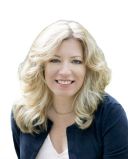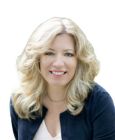Aging
The Secret to Finding an Aging Expert
Four tips to find an aging expert.
Posted January 4, 2022 Reviewed by Hara Estroff Marano
Key points
- Four tips can guide you in finding an expert in aging.
- Both expertise and experience matter.
- A degree may indicate expertise, but it is best to have experience and expertise.
Have you ever wondered what qualifies a person as an expert? Or, are you, like most people, accepting an authoritative voice as truth? If so, you aren't alone. So, how do we know who is a legitimate expert when so many are writing and speaking about aging?
Expertise
In many fields of clinical know-how, there is a clear direction a professional must take and a degree that follows. For example, a degree, such as M.D. or D.O., indicates the person went to medical school and obtained a degree. The physicians needed to acquire a certain amount of knowledge and skills before being awarded the degree. Receiving an education provides theoretical background and the most current and up-to-date facts and practices. Intuition, good people skills, and caring for others don't replace expertise gained from education.
- "I loved my grandmother and learned so much from her, so I will start bringing grandparents and children together."
- "I'm a caregiver to my mother-in-law."
- "I'm over 65, so I know what people my age need."
These experiences do not comprise expertise. But, experience does matter.
Experience

Have you ever wondered what constitutes the right amount of experience needed to be considered an expert? Let's say it isn't an N of 1. While the 10,000-hour rule popularized by Malcolm Gladwell in his book Outliers has largely been debunked, practicing and gaining experience in a field is key to being an expert.
Here's what I mean. Simply being a caregiver for a loved one does not make a person an aging expert (or a caregiving expert). Being an expert requires having a lot of experience with individuals.
Think about your own comfort level with seeing a physician or psychologist or hiring a caregiver. Do you want to hire someone who has had limited experience in the field or someone who has a lot of practice in the area? Individuals are not the same, and they rarely present with the same issues. Experience helps provide a depth of understanding and breadth of competence in a profession.
Research comparing novice and experienced clinicians shows the importance of experience (Hruska, 2015). Second-year medical students and practicing physicians were given easy and difficult medical cases to solve while being evaluated via fMRI brain scans. The medical students did just fine with fact-based judgments, but the more experienced physicians had better clinical decision-making related to prior experience.
When the novices and experts' brain images captured via fMRI were compared, the researchers found hemispheric differences between the two groups. The experienced physicians in fact had increased fMRI activity in the right hemisphere regions of the brain known for experiential knowledge, whereas the novices had increased fMRI activity in the left hemisphere regions of the brain known for factual, rule-based knowledge.
The differences between the groups reveal the importance experience provides. Additional neural networks in the left hemisphere of the brain help with clinical decision-making when it comes to problems that aren't strictly learned from classroom/book settings.
We are quick to recognize evidence of expertise based on extensive practice in sports. While knowing the rules of the game is essential to being a good player, a professional basketball player needs to practice and hone skills for years before qualifying to play professionally. We don't expect a basketball player to be recruited to the NBA if they've just started playing the sport a year ago.
The same holds for aging experts. Aging experts have honed their skills by engaging in the field in various ways: in-person, writing, and teaching. As the field evolves, those most engaged can keep up with new findings, relevant theory, and how individuals think and feel.
Standards for seeking experts in social and behavioral sciences (or any field) are the same as every other field, such as sports, medical science, and accounting.
Here are four tips for finding an expert in the field of aging:
1. does the person hold a degree or specialization in aging?
2. have they worked with many clients?
3. how many years has the person been working in the field of aging?
4. have they written or taught on the subject?
Removing as much subjectivity helps in finding a true expert.
References
Gladwell. (2011). Outliers: the story of success (First Back Bay paperback edition.). Back Bay Books.
Hruska, Hecker, K. G., Coderre, S., McLaughlin, K., Cortese, F., Doig, C., Beran, T., Wright, B., & Krigolson, O. (2015). Hemispheric activation differences in novice and expert clinicians during clinical decision making. Advances in Health Sciences Education : Theory and Practice, 21(5), 921–933. https://doi.org/10.1007/s10459-015-9648-3


